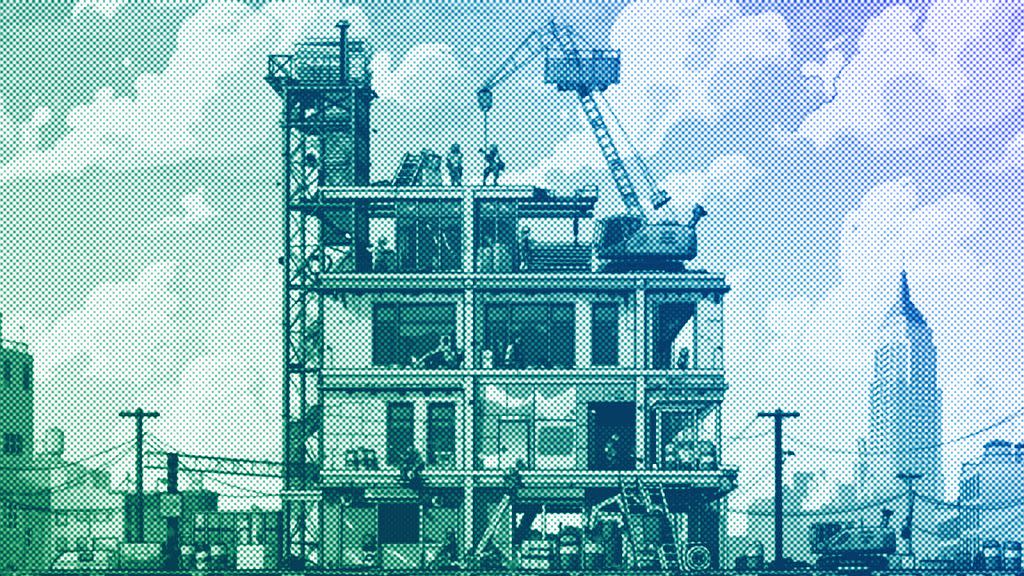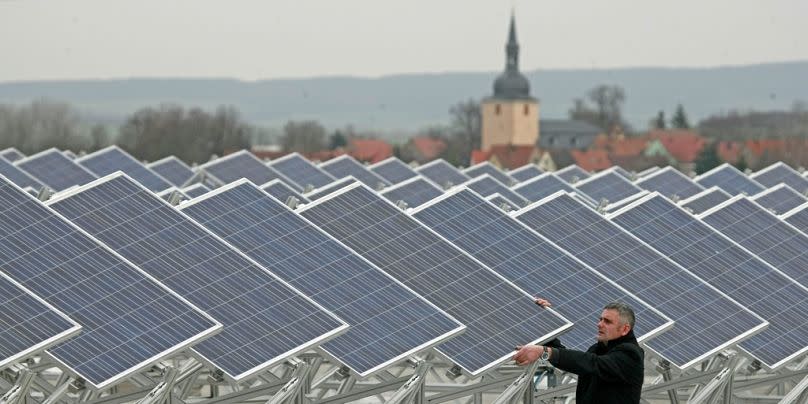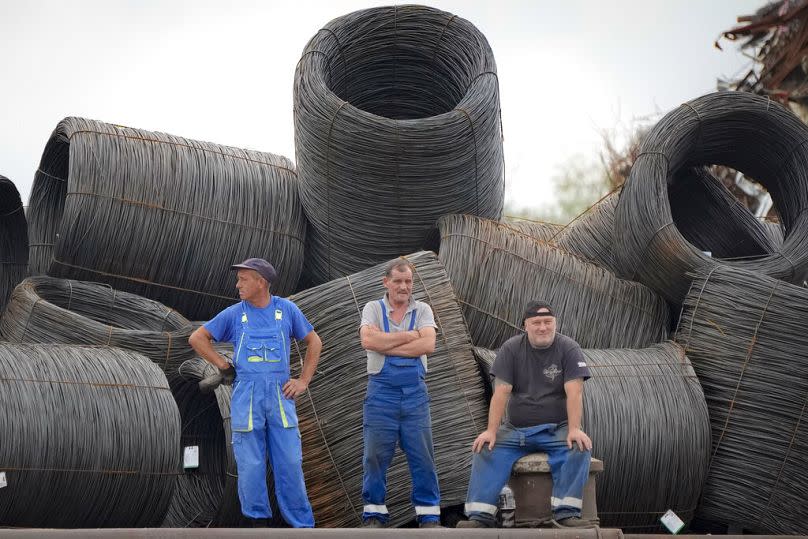Our built world is the biggest contributor to green house gas emissions. Here's how to change that

Another month, another climate record topples. February saw global air temperatures break records, while sea surface temperatures were also at the highest ever recorded, according to scientists at the EU’s Copernicus Climate Change Service.
Meanwhile, the world’s carbon dioxide emissions from energy continued to rise in 2023.
The physical consequences of climate change — storms, floods, fires, extreme heat — are affecting communities rich and poor across the planet. Real estate and the buildings around us are on the frontline of this challenge.
The built world is the biggest contributor to global GHG emissions, with 37% of their total.
Building owners and investors are beginning to wake up to the scale of the problem but change will not happen quickly enough, without intervention from policy markets.
Yet, in truth, just five areas must be prioritised to make progress in decarbonising real estate.
Renewables, smart grids, and new skills are needed
The world’s carbon dioxide emissions from energy rose yet again in 2023, underlining the difficulty we face in switching to renewable energy sources.
If we are to achieve this transition, we urgently need to power up the grid, creating better energy storage and smarter trading to reliably access renewable energy. This means investing in advanced storage solutions, with renewable sources and smart grid tech to improve grid resilience and capacity.
It’s true that the European energy crisis, triggered by the war in Ukraine, has catalysed interest from VC investors in building efficiency, electrification and grid solutions.
However, much greater investment will be needed to build a grid fit for the future. Real estate owners will play an important role because their physical estate can help to generate and store energy.

From fitting solar arrays and batteries to investing in ways to monitor building efficiency, property developers can help to stabilise energy grids and reduce the costs associated with clean energy.
Addressing the labour and skills shortage is another area that needs focus. Given global skill shortages in construction generally, the need for specific new skills to decarbonise buildings can be overlooked.
From consumers wanting to make their homes warmer and use less fuel, to developers who need to ensure that investors do not blackmark the assets they build, the energy transition is creating a huge demand for new skills in construction.
Italy set new solar and wind records last year but is still off track for 2030, expert says
Belgium eyes offshore wind and solar to increase renewables’ capacity
Companies including Germany’s Enter have identified this talent shortage as an opportunity, but the private sector will not realistically be able to meet the whole demand.
We’re talking about a workforce transformation akin to another industrial revolution, with a generation of plumbers, welders, joiners, fitters, electrical engineers and surveyors needing to learn new skills — not to mention the architectural and design skills needed.
We must quadruple the workforce by 2030 via training programs, apprenticeships, and reskilling initiatives.
AI tools and green banks could be useful, too
As well as new skills, it’s important to leverage new technologies. Generative AI and automation for example can optimise design, improve efficiency, and reduce errors in construction.
It’s an opportunity for the real estate world to reset but we need collaboration between tech companies and construction firms to develop AI tools that can reform how we build.
Making changes to the grid, developing skills and developing new technologies cannot be achieved without investment and banks play a critical role in financing the built environment.

By acting as a bridge between public and private capital, mission-driven green banks could be key to the energy transition.
Getting banks to "green" their loan portfolios through regulation and incentives will help boost investments in energy-efficient real estate and green technologies.
Installers can then partner with banks, utilities and real estate funds to access a larger customer base. Consumers will infer trust in those installers from their relationship with finance providers.
For banks, such partnerships will help to mitigate the risk of having property or loan portfolios that are exposed to energy risk — including the physical risks posed by ever-increasing temperatures.
It's time to catch up with the rest
From a consumer perspective, we urgently need to make energy-efficient housing more accessible and affordable, especially for low-income communities.
Sadly, over 41 million Europeans were unable to keep their homes warm in 2022. By retrofitting buildings with tech, promoting smart meter usage and expanding access to renewable energy, we can drastically reduce the financial burden.
By simply switching to using energy at the right time, in the UK and the EU, we could save up to €10.5 billion per year by 2030, and €15.5bn by 2050, according to an analysis conducted in collaboration with the University of Oxford.
Norway, Finland, Sweden and Estonia lead Europe in installing renewable technology such as heat pumps. But other countries urgently need to catch up.
Investing in the technology that can decarbonise the built world isn’t just the right thing to do, it can also turbocharge economies in Europe, creating jobs and generating great returns.
Many solutions exist to make our built world more sustainable, but the clock is ticking. While the private sector is coming up with innovative solutions, action is also needed at a policy and sector-wide level, if these are to hit their target.
Gregory Dewerpe is Founder and Managing Partner at A/O, a venture capital company investing in decarbonisation solutions.
At Euronews, we believe all views matter. Contact us at view@euronews.com to send pitches or submissions and be part of the conversation.

